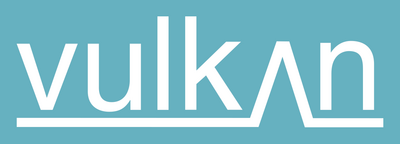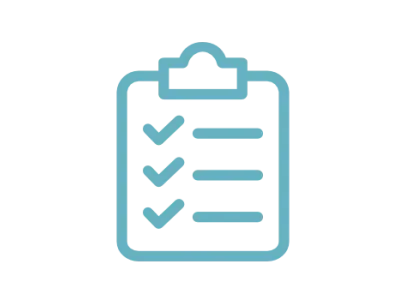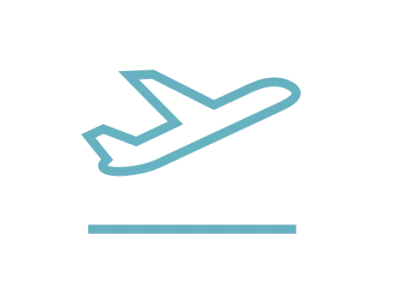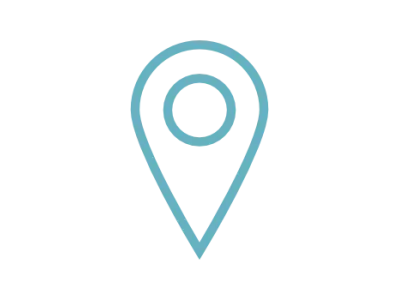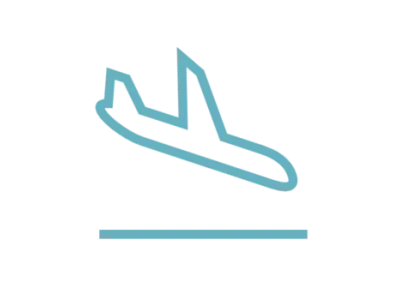
FAQ
For our latest information please visit our page Travel information.
Please note that all passengers to Iceland must have a valid passport.
The passport must be valid for at least 3 months from the date of departure. Each passenger is responsible for obtaining all necessary travel documents.
The best time to see the Northern Lights is during the winter, between October and March, when dark and long nights have taken over from the bright summer nights in Iceland. September and April could also be an opportunity to see the Northern Lights, even thought not considered to be the best months.
Our prices are stated as price per person and are based on sharing in a double room. The "from prices" (e.g. from £990) shown here on the website show the most advantageous price we can offer on a trip for a specified period.
When you search and book a trip on our website, you always get the lowest price available for the trip on the selected date. As the prices vary, it may be advantageous to compare several different dates.
We sell trips to Iceland from several countries, including Sweden, Norway, Denmark, Finland, UK, and the US. No matter where you live, you can easily book your trip to Iceland through one of our local websites. On each site, you will find information about our Iceland holiday packages, departure airports, and booking options.
- UK: You are already on our UK site. Here you can plan your Iceland holidays!
- Sweden: Besök vår svenska hemsida för att boka dina resor till Island.
- Norway: Besøk vår norske nettside for å bestille dine reiser til Island.
- Denmark: Besøg vores danske hjemmeside for at booke dine rejser til Island.
- Finland: Boka dina resor till Island via vår svenska hemsida.
- US: Visit our U.S. site to book your Iceland vacation packages.
That depends on which airlines you choose when you make the booking of your trip.
However, luggage is always included in all our travels with flights.
For our travels, the following luggage per person are included:
- Icelandair: 1 x 23kg. checked baggage +1 x 10kg. hand luggage.
- SAS: 1 x 23kg. checked luggage + 1 x 8kg. hand luggage.
- Norwegian: 1 x 23kg. checked luggage + 1 x10kg. hand luggage.
- PLAY airlines: 1 x 20kg. checked luggage + 1 x10kg. small bag, under the seat.
If you have purchased a package holiday from us which includes a flight that is subsequently cancelled by the airline, we will provide assistance and help you. We can either rebook your holiday for a later date or we can refund you the full amount of the trip.
Note that in order for you to be entitled to a free rebooking or to a refund, the airline needs to cancel your departure flight entirely. This means that notice of a strike or circumstances which entail a risk that your flight may be cancelled are not in themselves sufficient to warrant a free rebooking or refund.
If you have purchased a package holiday from us which includes a flight that is subsequently cancelled by the airline, we will provide assistance and help you. We can either rebook your holiday for a later date or we can refund you the full amount of the trip. Note that in order for you to be entitled to a free rebooking or to a refund, the airline needs to cancel your departure flight entirely.
Passenger rights in the case of an air strike are governed by an EU Regulation. You can find detailed information about this EU Regulation here.
If your trip is cancelled because of a volcanic eruption then we can either rebook your trip for a later date or we can refund you the full amount of the trip.
When volcanic eruptions occur, we follow the recommendations put out by the Swedish Ministry for Foreign Affairs as to whether or not travel to Iceland is safe.
It is very rare that volcanic eruptions affect air traffic or travel to Iceland. Since we launched our business in 1997, this has only happened once – when Eyjafjallajökull erupted in 2010 and prevented air traffic from operating to and from Iceland for a few days.
We will refund the amount paid if an excursion is cancelled. It is very uncommon that excursions are cancelled but it can happen from time to time due to bad weather.
You will then be offered the excursion on a different day and if this does not suit then you will immediately be refunded the amount you have paid.
A small number of hotels and apart-hotels offer room bookings on request. This means we cannot guarantee a room will be available. If your booking is rejected by the hotel then we will always offer you alternative accommodation.
If the accommodation we offer is not suitable then you will naturally be able to cancel your trip free of charge.
You can use the NUMBEO database to check approximate prices for food, drink and more in Iceland.
Prices are typically given in Icelandic króna (ISK).
Iceland has a relatively mild climate thanks to the Golf Stream. It is likely that you experience varying weather conditions during your stay in Iceland. The weather changes fast. Icelandic people have a saying about the weather: “If you don’t like the weather, just wait 15 minutes”.
The average temperature is about 11°C during summer, and about 0°C during the coldest period, January to February.
| Januari | Februari | Mars | April | May | Jun | July | August | September | Oktober | November | December | |
|---|---|---|---|---|---|---|---|---|---|---|---|---|
| Temp (°C) | -0,4 | 0,1 | 0,9 | 2,9 | 6,5 | 9,4 | 11,1 | 10,6 | 7,9 | 4,6 | 1,7 | 0,2 |
| Rain/snow (mm) | 99 | 97 | 99 | 75 | 60 | 67 | 66 | 83 | 86 | 115 | 97 | 100 |
The food served in Iceland is World class, using fresh produce and executed well. Especially fish and lamb are popular and not to be missed. Vegetarian and lactose free food is sometimes available, but not that common.
Direct flights from these cities and carriers:
London
Heathrow LHR - Icelandair (FI)
Gatwick LGW - WOW (WW) , Icelandair (FI)
Luton LTN - EasyJet (U2)
Birmingham BHX - FlyBe (BE)
Bristol BRS - EasyJet (U2)
Manchester MAN - Icelandair (FI) , EasyJet (U2)
Edinburg EDI - EasyJet (U2)
Glascow GLA - Icelandair (FI)
Connecting flights from other airports in the UK also available.
In the case of longer delays, the airline is required to offer free food and drink in reasonable proportion to your waiting time. If you are delayed by one or more nights, the airline is also obligated to pay for your accommodation.
The airline is always obligated to offer you new flights so that you can either arrive at your destination as quickly as possible or at a later date that suits you.
Keflavík international airport is located 48 km from Reykjavík. There is a buss transfer in connection with each arriving and departing flight, and the journey takes approximately 45 – 50 minutes. It is possible to catch a transfer that takes you via the famous Blue Lagoon in connection with some arriving/departing flights (time: 2,5 – 3 hours, inc. bathing).
During autumn, winter and spring you should bring light fleece/wool clothing, a sweater or cardigan, wind and rainproof clothing and solid shoes/boots. If you are spending time in Reykjavík its wise to bring some smarter clothing to wear for dinners out or going out. Don’t forget your swimwear!
Internet connection is widespread in Iceland, and all hotels, restaurants, cafes offer this for free. Many public places have Wi-Fi access.
In Iceland they use 220 volts with sockets of type C and F. In the United Kingdom type G is used, and you therefore need to bring an adapter.
There are 3 GSM phone operators in Iceland. The GSM network covers the Reykjavík area and the Southwest of Iceland, as well as any area with a population over 200 people. Icelandic pay as you go cards can be purchased in for example petrol stations all over the country. Hotels are equipped with telephones, but phone booths are not common. The international code for Iceland is 354.
Iceland was designated the cleanest country in the world in 2010. This was according to Forbes online. In a study conducted by Yale and Columbia Universities, 163 countries were ranked on the basis of 25 different environmental criteria such as water and air quality, emissions and greenhouse gases and how the environment affects the population’s health. The highest possible score in the study was 100 – Iceland had a score of 93.5. Iceland got full marks in 11 of the 25 indicators.
Source
You can buy tax-free alcohol and other goods upon arrival in Iceland. You can bring in 1 L of spirit and 1 L of wine, as well as 200 cigarettes or 250 grams of other tobacco types. It is not permitted to import snus to Iceland. Travellers spending more than ISK 6000 in one shop can get the VAT returned (up to 15%). Ask for a tax-free receipt while shopping, which you need to show along with the unopened packaging at the airport, where you will get the VAT paid back.
For more information see: www.icetourist.is
Shops: Mon – Fri 10 am – 6 pm. Sat 10 am – 2 pm. Shopping centres have longer opening hours on Saturdays and Sundays. During summer some shops are closed on Saturdays.
Grocery stores: Most grocery stores are open Mon-Fri 10 am-18.30 pm, Sat. 10 am- 18pm, Sun 11 am- 17pm. There are also nightopen grocery stores/supermarkets in Reykjavik.
Banks: Mon – Fri 10 am – 4 pm.
Restaurants, cafes, and bars: Usually open between 10 am and 1 am all week. Nightclubs are open until 1 am during the week, and until 5 am at the weekend.
The area of Iceland is 103,000 km².
Of this total area about 1% is cultivated, 20% is pasture, 11% is covered by lava and 12% is covered by glaciers.
Iceland is located in the North Atlantic, between North America and Europe.
The highest mountain in Iceland is Hvannadalshnjúkur (2,119 m).
The largest glacier is Vatnajökull (8 300 km²), which is also the largest glacier in all of Europe.
The largest lake is Lake Thingvalla (83.7 km²). The most well-known lake, though, is Mývatn, which is known for its sea bird populations.
The longest river is Thjórsá which is 237 km long.
The largest waterfall is Dettifoss in northern Iceland (200,000 litres per second).
Iceland's population was estimated at 386,970 inhabitants at the end of the second quarter of 2024. Iceland's largest city is Reykjavik, with over 135,714 inhabitants (2024). The capital and nearby towns of Mosfellsbær, Kópavogur, Garðabær, Seltjarnarnes and Hafnarfjörður form Iceland's most densely populated urban area, Greater Reykjavik (Stór-Reykjavík), with a total of 239,733 inhabitants (2024). Approximately 63.7% of Icelanders live in the capital region
Other major centres are:
- Akureyri in the north (19,219 inhabitants, 2024)
- Reykjanesbær, which includes Keflavik, (19,724 inhabitants, 2024)
Vestmannaeyjar is not included in the latest statistics for the largest cities, suggesting that its population may have decreased or that other cities have grown more.
Iceland is Europe's most sparsely populated country, with only one-fifth of the land area inhabited, primarily along the coastal strip.
CAN'T FIND THE ANSWERS TO YOUR QUESTIONS?
Please contact us by filling out the contact form below, or contact our knowledgeable sales team directly by phone.
